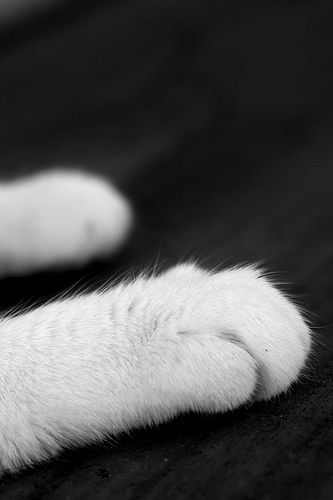
Gatos egípcios mumificados em louvor í Deusa Bastet
íustria detecta vírus da gripe aviária em gatos
Mais de 150 gatos estão vivendo no abrigo na íustria
A íustria informou que detectou o vírus H5N1, causador da gripe aviária, em vários gatos vivos.
A descoberta no estado de Styria, no sul do país, ocorre depois da confirmação da presença do vírus em um gato morto na Alemanha, na semana passada.
O caso era considerado o primeiro exemplo, fora da ísia, do vírus sendo transmitido de uma espécie para infectar um mamífero.
Mas, segundo a correspondente da BBC Ania Lichtarowicz, é pouco provável que o vírus esteja se espalhando entre gatos e a chance de ser transmitido para humanos é insignificante.
Abrigo
Autoridades da íustria afirmaram que os três gatos com o vírus H5N1 estavam em um abrigo para animais, perto de Graz, que também abrigou aves infectadas em fevereiro, quando o vírus foi detectado pela primeira vez no país.
Todos os gatos no abrigo Arca de Noé foram colocados em quarentena e o abrigo foi fechado até segunda ordem.
===============================================
Got a cat? No need for bird flu panic
By Philippe Naughton
The news that a German cat has died after contracting the H5N1 bird flu virus should not unduly worry pet-owners in the UK or elsewhere.
A virologist recently tested 629 village dogs in a province in central Thailand and found that 160 of them showed H5N1 antibodies, suggesting either that they were infected by the virus or had been infected.
That study is continuing, but there has not been any evidence that dogs or cats in Thailand or other countries where the virus is endemic have been acting as vectors in transmitting the disease to humans – although they may be passing it on between bird populations and among themselves.
Mark Johnson, spokesman for the British Small Animal Veterinary Association, described as “worrying” the news that a cat found dead on the Baltic island of Ruegen had been infected with the H5N1 virus, blamed for more than 90 deaths in Asia and Turkey.
But he stressed that given the number of cats that eat wild birds thoughout the world, the incidence of cats becoming infected is “extremely low”.
He said: “There is no reason for cat owners to start having their cats put to sleep. The virus has not jumped from poultry to humans in western Europe and it is not likely to do so with cats.
“But if a cat has flu symptoms owners should consult a vet. Cats do get flu but it is a different strain from H5N1. Cats are vaccinated against flu but there are still a few cases each year.”
Vets have already been warned to step up surveillance of cats and dogs and to be on the lookout for any unusual flu symptoms. Cats can already suffer from an entirely separate feline influenza, although this is covered by vaccinations and is rare.
In a letter to the Veterinary Record this week, two British researchers point out that there are a wide range of mammal species that can contract the H5N1 virus, including not just cats and dogs but pigs, mice, rabbits and ferrets too.
In fact it is the risk of transmission to pigs that most worries public health experts. Pigs, much closer to humans in their susceptibility to disease, have proven in the past to the “mixing vessels” when avian flu mutates.
Dr Freda Scott-Park, president of the British Veterinary Association, said: “The virus has been in Asia since 1997 and to our knowledge there hasn’t been much evidence of dogs and cats being killed by it. That gives us some hope that it will not happen in this country.
“When the bird flu arrives, we will then need to be looking at our advice to pet owners. But it’s a difficult one because you can’t really keep pets indoors all the time. It may well be that if the disease is diagnosed and you’re in a protectin zone, pet owners will have to take care and only let their pets out on leads.
“But the last thing we want to happen is for pet-owners to say, ‘Right, I want my cat or my dog put down now because it might have bird flu.’ We have to keep a sense of perspective: we haven’t got the disease in the UK, it’s a disease of birds and it really does seem to be inefficient at infecting non-bird species.”

NYC: 24_08_05
Photo by corvid73 – é All rights reserved